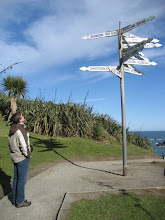"There is no great genius without some touch of madness. "--Seneca, Moral Essays. On Tranquility of the Mind, 17, 10
"'Without effective therapy, widely available and used, we wouldn't be able to support the dataflow economy we have today.'"--Greg Bear, / (Slant)
"'Without effective therapy, widely available and used, we wouldn't be able to support the dataflow economy we have today.'"--Greg Bear, / (Slant)
Several science fiction authors explore the relationship between sanity and society. In Xenocide and Children of the Mind, Orson Scott Card imagines a society which regards obsessive-compulsive disorder (OCD) as possession by the gods. In A Deepness in the Sky, Vernor Vinge imagines a far-future society which uses hyperfocus--which my society regards as a symptom of attention-deficit hyperactivity disorder (ADHD) or autism--for enslavement. In /, Greg Bear imagines a near-future society which stresses its best and brightest into unhappiness--until technological therapy restores them. / adds Tourette syndrome alongside OCD and ADHD to the list of disorders with subplots in science fiction.
I read again my autographed copy of / in Seattle. In this city my programming work and play, in business and hobby projects, have brought me into contact with "neurodiversity." In former subconsultants and friends I have observed these traits: preoccupation with a single subject, repetitive rituals, idiosyncratic speech, inability to express empathy, impaired ability to perceive nonverbal cues, perfectionism, perfect alignment of objects, echolalia, self-injury, social avoidance, fidgeting, poor impulse control, unusual reluctance to take risks, sexual preference uncertainty, substance habits, and a subvocalization behavior I don't know how to classify. One could regard these traits as symptoms of Aspberger syndrome, OCD, high-functioning autism, Tourette syndrome, borderline personality disorder, social anxiety, avoidant personality disorder, ADHD, or a comorbid combination of these.
One could also regard these traits as personality weaknesses associated with expert knowledge, technical thought, humor, helpfulness, attention to detail, organization, problem-solving, cognitive motor control, artistic temperament, or shyness. Hacker culture certainly has some skepticism about Aspberger syndrome and ADHD:
After all, people in authority will always be inconvenienced by schoolchildren or workers or citizens who are prickly, intelligent individualists — thus, any social system that depends on authority relationships will tend to helpfully ostracize and therapize and drug such ‘abnormal’ people until they are properly docile and stupid and ‘well-socialized’.Whether disorder or personality, I am intrigued by the range of experience, and curious about the requirements of excellence.
